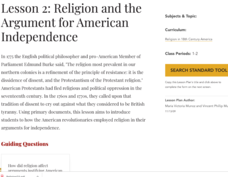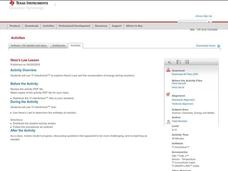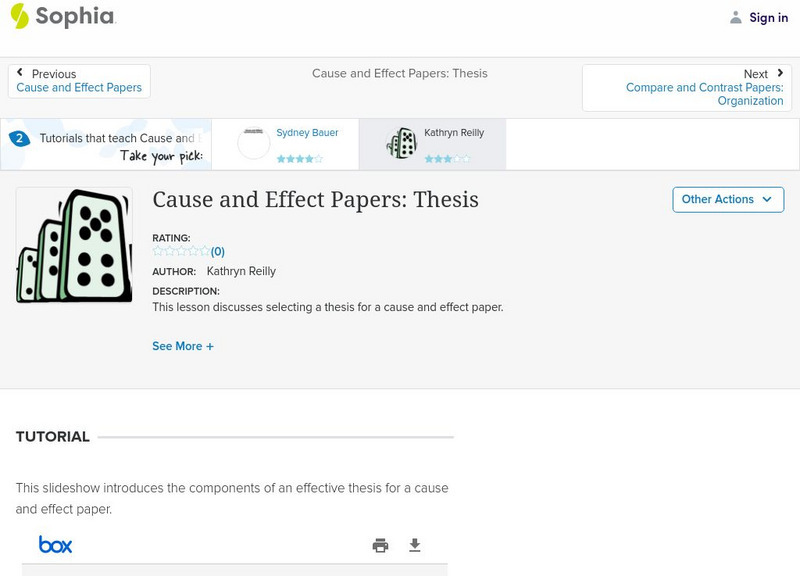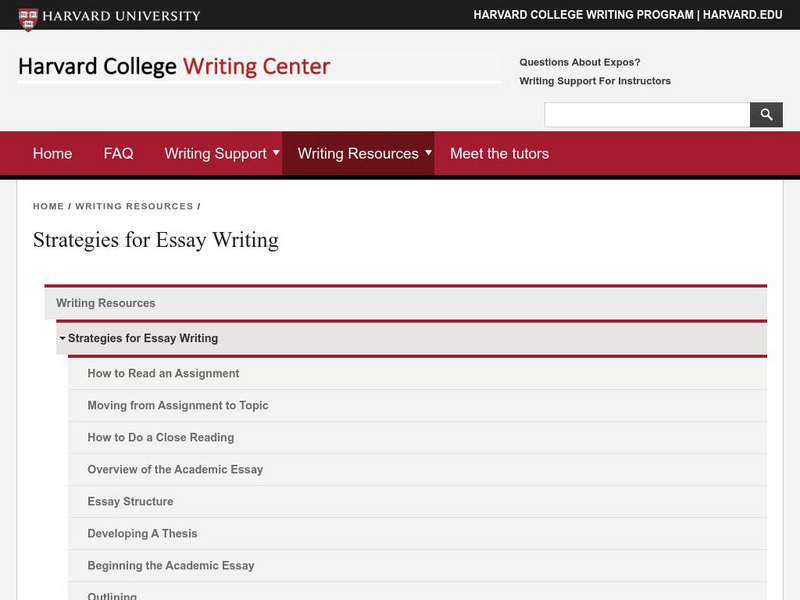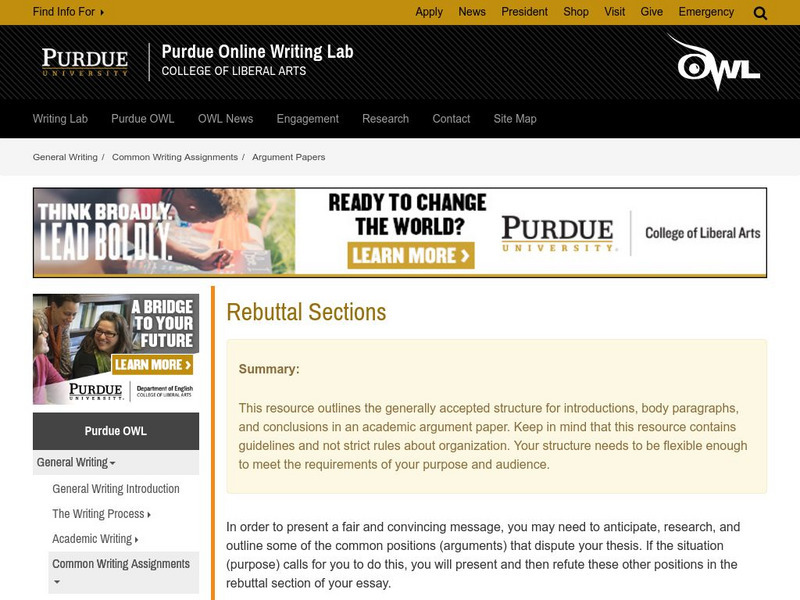National Endowment for the Humanities
Lesson 2: Religion and the Argument for American Independence
Young scholars examine how religion affected arguments justifying American independence. They read and analyze primary source documents, and write an essay analyzing how Americans used religious arguments to justify revolution against a...
National Endowment for the Humanities
Lesson 1: The First Great Awakening
High schoolers examine the First Great Awakening and how it affected religious belief in colonial America. They read and analyze primary source documents, explore various websites, and write a five-paragraph essay examining the beliefs...
Children’s Hospital of Philadelphia
Case Studies: Influenza and HIV
Stop infection spread. Pupils participate in an activity to model infections and replications of viruses. Within the activity, scholars see that viruses may end up with genetic variation and connect that to how some forms of the flu are...
Curated OER
Centers of the Storm: The Lyceum and the Circle at the University of Mississippi
Greek Revival architecture and the Civil Rights Movement? Sure! Examine how the Lyceum and Circle, two historic buildings located on the campus of the University of Mississippi, relate to integration and the 1962 riot on the university...
Curated OER
Hess's Law
Pupils solve chemical equations. In this chemistry lesson, they balance chemical equations after completing a lab. They can use a TI for this assignment.
Curated OER
Energy Content of Foods
Learners collect data, organize and analyze the data and compare it to real life scenarios. This assignment requires two class periods.
Curated OER
Introduction to Electric Circuits
High schoolers explore using a circuit board in this physics lesson. They will analyze current and battery set up on a circuit board. Teachers check the board before the students experiment.
Texas Instruments
Measuring Air Pressure Lab
Your class can investigate the weather through an experiment. In this chemistry lesson plan, learners collect data on air pressure and relate it to the weather. They collect data with the TI containing a barometer probe.
Curated OER
Keep it Bottled Up: Linear Rates of Pressure Increase
Pupils explore linear functions in this lesson when they collect and analyze data as a chemical reaction proceeds. Learners record pressure versus time data and model the data as a linear function. They also examine the concept of slope...
Curated OER
Falling Objects
High schoolers examine the velocities of two different falling objects. They produce distance vs. time and velocity vs. time graphs using a Motion Detector and a CBL 2 to collect experimental data. Learners analyze and interpret the...
Curated OER
When the Snow is as High as an Elephant
High schoolers study the concept of mean values using a data plot. Learners enter the given data in the activity to create their data table. They use the data table to calculate the mean of the snowfall percentage provided in the...
Curated OER
Corn-Crop is a Bin-Buster
Learners calculate percent change and create lists of data. They enter the corresponding bushels of corn measured in billions to their list and display, then convert the acres into scientific notation and use the value on the home screen...
Curated OER
Angling for Distance
Explore the concept of projectile distance through determining the angle that will provide the maximum distance of a launched projectile. Students launch baseballs on a football field and video tape the path of the ball.
National Endowment for the Humanities
Slavery and the American Founding: The "Inconsistency Not to Be Excused"
High schoolers examine slavery in the revolutionary and colonial eras of the United States. In this slavery lesson, students investigate the presence of slavery in early America, the language of the Constitution, and the intent of the...
National Endowment for the Humanities
Lesson 3: Religion and the Fight for American Independence
Pupils explore the role religion played in the American Revolutionary War. Using primary documents and writing exercises, high schoolers understand how religion was used in support of the war efforts and how specific religious groups...
National Endowment for the Humanities
Lesson 2: The Debate in Congress on the Sedition Act
Pupils research and discuss the provisions in the Constitution that supported the arguments for and against the Sedition Act. They articulate objections to and arguments in favor of the Sedition Act.
Houghton Mifflin Harcourt
Holt, Rinehart and Winston: Writer's Model: Cause and Effect Essay Example 2
This nine-page essay provides a written example of a cause and effect essay. Clicking on the "Writer's Guide" link in the upper right-hand corner of the page enables the user to get tips, directions, and explanations on the essay.
Georgia Department of Education
Ga Virtual Learning: Popular Culture: Expository Writing
This lesson focuses on expository writing including definitions, terms, sample expository essays, sequencing events into chonological order, and links to information about how to write expository essays.
Sophia Learning
Sophia: Cause and Effect Papers: Thesis
This slideshow lesson focuses on how to write an effective cause and effect thesis; it reviews cause and effect writing, lists signal words for cause and effect papers, explains what is required in the thesis, and provides three examples...
Sophia Learning
Sophia: Revision Technique: Thesis and Support
This slideshow lesson focuses on assessing and revising the thesis, topic sentences, and supporting details in a paper. It uses the analogy of the body: the thesis and topic sentences are the bones and the supporting details are the...
Harvard University
Harvard University: Strategies for Essay Writing
This website provides a series of links to detailed information about each segment of how to write an academic essay from how to read the assignment to the final edits. Use the links to the right. W.9-10.1a claims/intro/org, W.9-10.2a...
University of Toronto (Canada)
University of Toronto: Engineering: Types of Documents
This site offers links to types of documents used to communicate information in the workplace. They include short reports, proposals, memos, case studies, and lab reports.
Online Writing Lab at Purdue University
Purdue University Owl: Rebuttal Sections
This Purdue University OWL (Online Writing Lab) provides information related to writing an argumentative essay. This guide explains to develop the rebuttals section.
Thinkport Education
Thinkport: Writing Explanation Part 1: Claims, Evidence and Reasoning
In this module, students will explore how claims, evidence and reasoning are used to write an effective explanation. Students will read an article that addresses the question, "Should Congress consider comprehensive climate change laws?"


